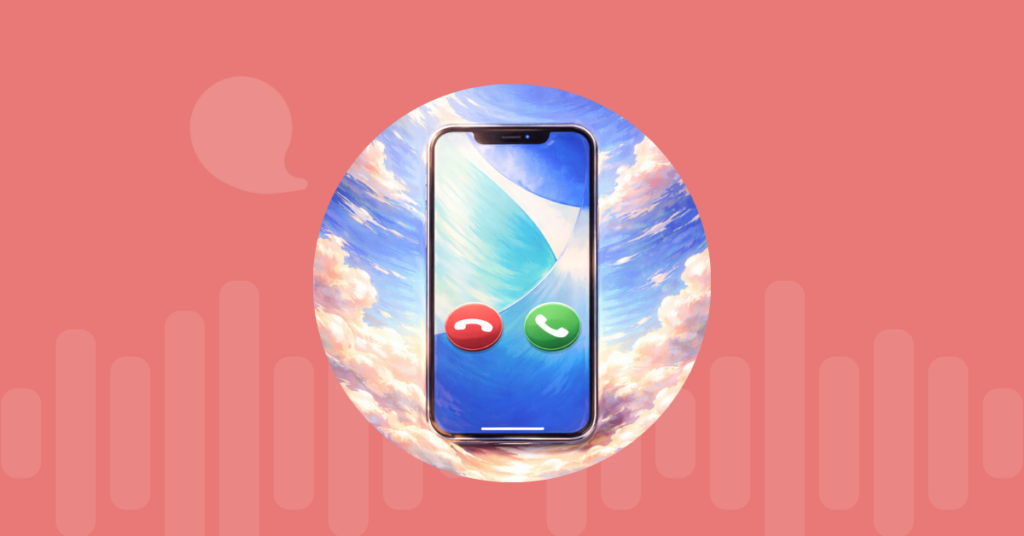How is VoIP Phone Service Different Than Regular Telephone Service?
- Renier Schrenk

Table of contents
VoIP phone service has been around for some time as businesses and entrepreneurs switch from telephone services that use PSTN (Public Switched Telephone Network) to a more advanced system. VoIP phone service uses an Internet connection to deliver voice calls using packet-switching technology.
Virtual phone service is cost-effective, and the phone number that you purchase can be used from any compatible device, such as your desktop computer, laptop, and mobile devices. The number stays with you wherever you are located. So, as long as you have Internet access, you can make a VoIP phone call. Learn more about the benefits of this new small business phone system and how to get a VoIP number today.
What is VoIP Phone Service?
VoIP phone service represents an emerging technology that makes it possible to make and receive phone calls over the Internet. Before we look at how VoIP has revolutionized voice communication, it is essential to understand that the basic concept of making a call has not changed. When using VoIP, you simply pick up the phone and dial a number. The same is true for receiving the call. The phone rings, and you pick up the receiver (or press the talk icon if you are on a smartphone).
Also, many of the features with which we are accustomed still work with VoIP phone service. Voicemail, putting someone on hold, forwarding calls to an alternate number, and IVR systems are all available on VoIP. Even faxing is a feature of VoIP systems. Behind the scenes, however, a lot of things are considerably different.
The Differences Between VoIP Phone Service and a Regular Business Phone System
Small business phone systems have use traditional copper wires to transmit calls. The emergence of virtual calling makes it possible to make those same calls over the Internet. With this new technology, a business can make calls at a fraction of the cost of traditional phone lines.
How Does a Conventional Small Business Phone System Work?
Traditionally, voice calls travel over the phone network through copper lines on the PSTN (Public Switched Telephone Network). The PSTN phone network utilizes circuit switching technology to accomplish this task. When a call is sent over a regular landline, circuits are opened from the caller to the other person. The entire circuit must be kept open for the duration of the call. Keeping the circuits open is why long-distance calls are so expensive. The greater the distance a call travels, the more circuits must be opened and kept open since no other call can travel the same route.
Another distinction of a conventional phone network is there is no requirement for power or the Internet. Even if the power and Internet are knocked out, the phones will still work, which can be invaluable during a disaster or emergency.
How Does Small Business VoIP Service Work?
VoIP phone service, on the other hand, routes voice calls over data networks such as the Internet or internal enterprise LANs. To do this, VoIP uses packet switching technology. With VoIP, the human voice is converted into data packets, and these packets are then sent to their destination. These packets quite often take different routes to get there. Once received, they are assembled in the right order and converted into sound.
A small business VoIP system relies on the Internet to operate. As a result, power and a working Internet connection must always be present to make calls.
Cost Differences Between the Two Systems
Business VoIP service is less expensive than a conventional phone system. With traditional phone lines, companies must install wires for each phone line required. However, there is no separate infrastructure needed for VoIP. This phone service utilizes Internet connections that are already available. Thus, business VoIP providers do not need to charge for installing wiring to setup a virtual phone service.
Also, as mentioned, calls made over the PSTN require an open circuit to complete the call. The distance and time needed for the call all impact the cost for each call. VoIP technology, on the other hand, does not have this requirement, and thus calls using the technology are significantly cheaper.
The Benefits of VoIP Phone Service
Small business phone systems using modern technology come with a host of benefits not found with a traditional phone service. Virtual calling enhances team connectivity, is highly flexible, works with any device, and is highly mobile. Each of these features make switching a worthwhile endeavor.
Interoperability
Landlines previously were silos, separated from other digital services like email or instant messaging. When the Internet first popularized, this was not a problem, but over time, online connectivity became an integral part of workflows. It meant that phone calls remained outside the new Internet and app ecosystem. VoIP phone service bridges this divide by connecting calls to the same network as video, email, instant messaging, file transfer and more! Hosted VoIP systems are now integrated with many enterprise applications to enable data transfer and more efficient processes.
Free Phone Calls
Small business VoIP service comes with a significant cost advantage in addition to those already mentioned. Calls made to other VoIP numbers are free.
VoIP Phone Service Offers More Features
One of the biggest advantages of VoIP phone service is the number of features now available. Now, businesses of all sizes can get enterprise-class calling features at an affordable price when they use a VoIP provider. Many of these features are charged at a premium with traditional phone service:
- Conferencing – Create virtual conference rooms with an unlimited number of users.
- ACD Queues – Create custom queues to route calls based on predefined rules quickly.
- IVR – Customize interactive voice response prompts for customers to locate the appropriate staff member quickly.
- Voicemail – Assign voicemail boxes for each employee.
- Faxing – Employees can send and receive faxes through their virtual phones.
- Instant Messaging – Because VoIP is an Internet technology, instant messaging is a standard feature.
- Hosted Service
Many business VoIP providers offer a hosted VoIP service. With such an arrangement, the VoIP phone provider manages all the phone equipment at their site. The benefit of this approach is that companies do not need to install hardware or hire additional staff to manage the phone system.
Quick Setup
Because VoIP service can be offered as a hosted solution, setup is a breeze. There is no equipment to install, and companies can get started using their existing devices such as a smartphone, tablet or desktop computer. They can even use an existing desk phone with a required VoIP adapter. Setup is so quick that oftentimes, services can be completed within a matter of hours.
VoIP Phone Service Allows Calling from Any Device
With the landline, users were pretty much restricted to use a single device. VoIP does things differently. Any phone number that you purchase is assigned to you and can be used to make calls from any compatible device.
Virtual Numbers are Portable
Business VoIP service is not tied to a physical location, so you always have it even if you are traveling. Mobile VoIP is useful for enterprises because there is no wait when relocating offices. The phone number will work at the new office provided there is a working Internet connection available.
Enhanced Team Connectivity
Team members enjoy greater connectivity with a small business phone system. Many VoIP phone providers offer a feature known as “follow-me.” With this feature, customers and team members don’t need to concern themselves with how to reach someone. They can simply dial one number, and the system rings all phone numbers for the person. That way, the individual can take the call on any device, even if they are away from the office.
Flexible
To add users to a traditional phone line, companies must install new wiring and purchase additional desk phones. VoIP providers are very different. With a small business phone system, companies can add and delete users with the click of a button.
VoIP Phone Service Allows Companies to Expand Global Presence
Virtual numbers are not tied to a specific location, as is the case with traditional landlines. There is no need to deal with a local phone provider. Companies can choose from thousands of national and international area codes. In this way, businesses can establish a presence in another market without the need for a physical office.
VoIP phone service represents a new architecture for making phone calls. The new technology takes advantage of the Internet to combine services that were once independent from each other. Now, companies can combine voice, email, faxing and more in a standard technology that allows for greater team collaboration. Not only that, VoIP will enable companies to present a professional image and take advantage of a wealth of enterprise-class calling features at an affordable price. Sign up for a free 30-day trial of VoIPstudio business phone today to experience these great features for yourself.
More from the blog
Want to improve your business communication?
Unlock enterprise-class call center power at affordable prices – no hardware, no delays, no surprises!






